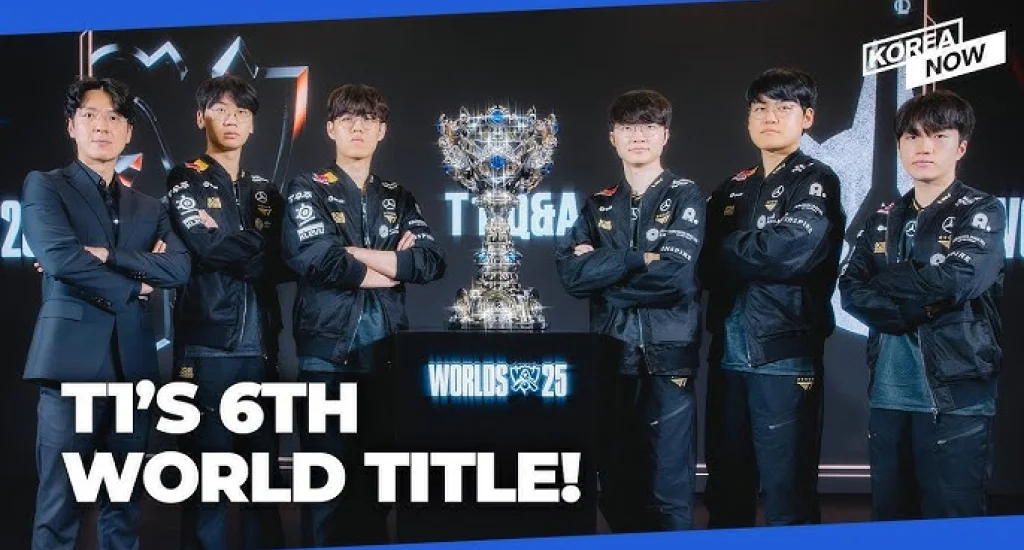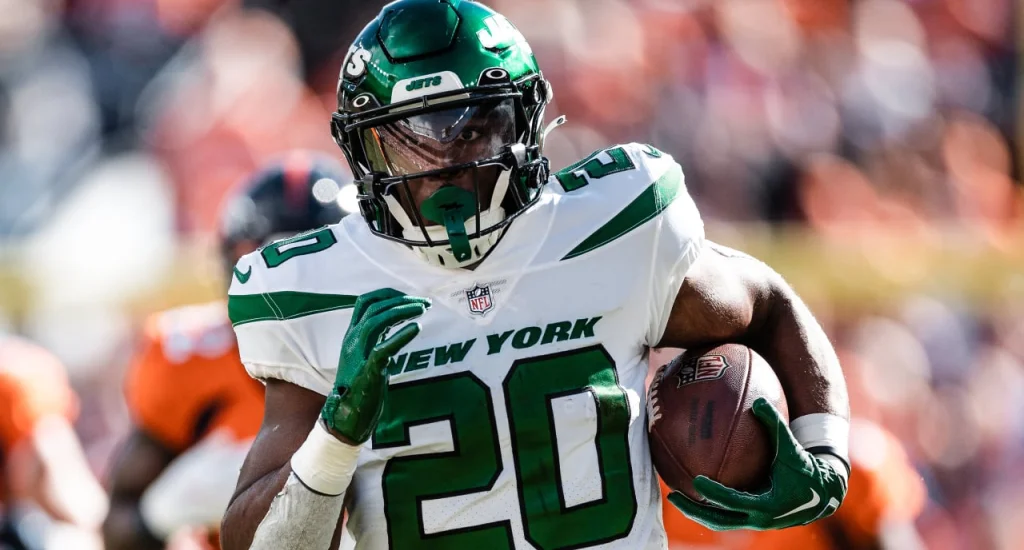
Breece Hall: The Jets Running Back Fighting to Reclaim His Promise
Two years after an ACL tear derailed his rookie season, the former Iowa State star is navigating the complicated reality of life in the NFL's most dysfunctional franchise
There's a moment in every athlete's career when the narrative shifts from potential to reality, from what might be to what is. For Breece Hall, the New York Jets' talented but increasingly frustrated running back, that moment arrived somewhere between the promise of his electric rookie start and the grinding, unforgiving present of November 2025.
Hall was supposed to be different. The 36th overall pick in the 2022 NFL Draft out of Iowa State, he burst onto the scene with the kind of explosiveness that made scouts compare him to elite dual-threat backs. In just seven games as a rookie, he racked up 681 total yards and five touchdowns before a devastating ACL tear in Denver ended his season and changed everything that followed.
Now, more than two years removed from that injury, Hall finds himself in a familiar Jets predicament: individually talented, team-wise trapped, and caught in the crossfire of an organization that continues to find creative ways to squander its assets.
The Comeback That Never Quite Came Back
Hall's return from injury in 2023 was medically successful but statistically underwhelming. He played all 17 games, showing flashes of the explosiveness that made him a second-round pick, but the consistency never materialized. According to Pro Football Reference, he finished with 826 rushing yards on 223 carries — a respectable 3.7 yards per attempt, but far from the dynamic playmaking that defined his college career and rookie debut.
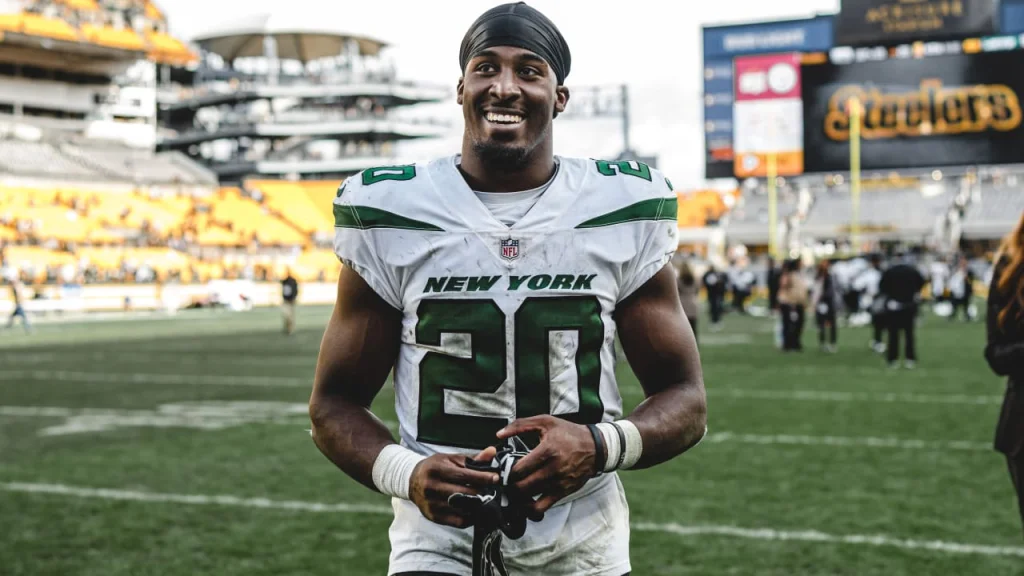
The 2024 season brought modest improvement: 1,066 total yards from scrimmage and nine touchdowns. Solid production, certainly, but not the game-breaking impact the Jets envisioned when they selected him. And in 2025, as the Jets stumble through another disappointing campaign, Hall has become a symbol of something larger — talent wasted by organizational dysfunction.
"Breece is dealing with what every skill player on that team deals with," said a former NFL running back who requested anonymity. "You can be as talented as you want, but if your offensive line can't block, your quarterback can't stay healthy, and your coaches can't get on the same page, your individual brilliance doesn't matter."
This kind of organizational chaos isn't unique to the Jets, though they've perfected it into an art form. Even outside of football, we see how institutional dysfunction can derail individual excellence — whether it's Jayden Daniels' gruesome injury casting shadows over the Commanders' season or systemic issues preventing talented individuals from reaching their potential.
The Statistical Reality Behind the Struggle
Hall's challenges aren't just about team dysfunction — they're also about the brutal mathematics of modern NFL running back usage. The Jets have implemented a committee approach that limits his touches, spreading carries between Hall and backup Braelon Allen in ways that prevent either from establishing rhythm.
Through Week 10 of the 2025 season, Hall is averaging just 14.6 touches per game, according to ESPN's statistics. For a player drafted to be a featured back, that's a concerning number. Elite running backs need volume to make impact — to wear down defenses, to find creases that only emerge after sustained pounding, to reach the kind of production that justifies their draft position.
The Jets' offensive line ranks 24th in run blocking according to Pro Football Focus, which means Hall is often meeting defenders at the line of scrimmage rather than attacking second-level space. When your blocking is subpar and your play-calling is predictable, even the most talented backs struggle to produce consistently.
"Running back is the most dependent position in football. You're only as good as your line, your scheme, and your game situation. Breece has all three working against him right now."
— NFL offensive coordinator speaking on background
The Mental Game After Major Injury
What doesn't show up in statistics is the psychological toll of major knee injuries. Hall tore his ACL in October 2022, underwent surgery, and faced the grueling reality of modern sports medicine: the physical recovery is just the beginning. The mental recovery — trusting the knee again, cutting without hesitation, playing with the reckless abandon that made you special — takes much longer.
Some players never fully regain that edge. Others take years to rediscover the instinctive confidence that separates good from great. Hall has been candid about his recovery process, acknowledging in media sessions throughout 2024 that regaining complete trust in his knee was an ongoing process, not a single moment of realization.
By most accounts, Hall is physically healthy now. But physical health and playing with complete freedom are different things. There's a difference between being able to cut and being willing to cut with the violence that running back success requires. That gap might explain some of the production inconsistency that frustrates Jets fans and fantasy football owners alike.
The Fantasy Football Factor
Hall's NFL struggles have had real consequences beyond the Jets' win-loss record — they've affected the millions who drafted him in fantasy football leagues expecting RB1 production. The disconnect between talent and opportunity has made him one of 2025's most frustrating fantasy assets: capable of explosive weeks, prone to disappointing duds, impossible to confidently start or sit.
This matters because fantasy football shapes how casual fans perceive players. Hall's reputation has taken hits not just from his actual performance, but from the perception that he's underdelivering relative to draft capital — both in the NFL and fantasy leagues. It's not entirely fair, but it's the reality of modern sports consumption where statistics matter more than tape, and weekly production outweighs contextual understanding.
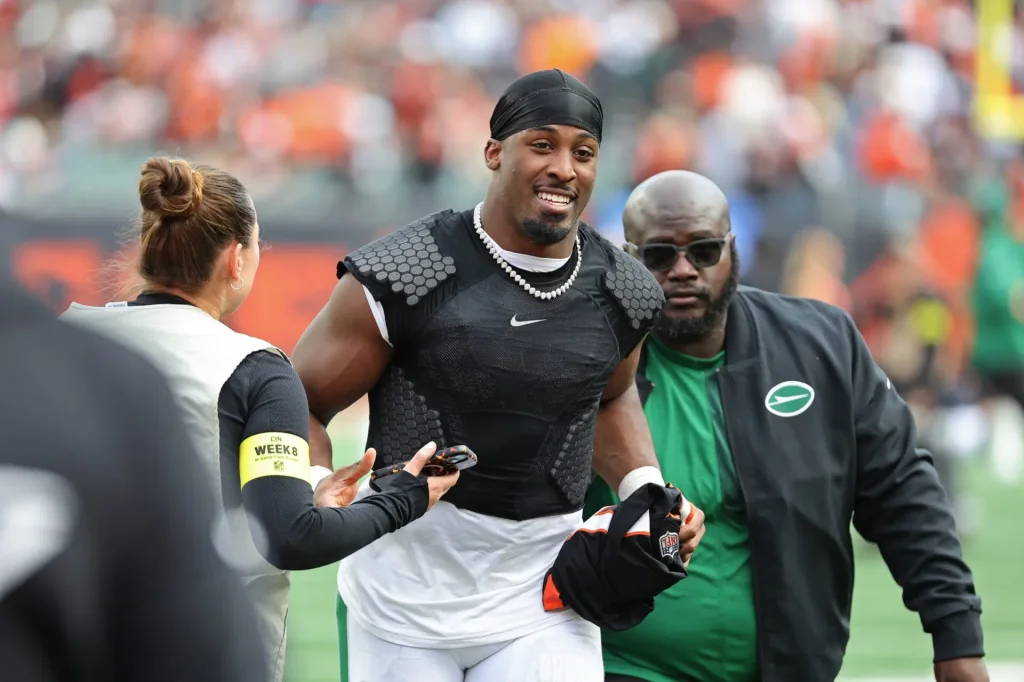
What the Jets Owe Their Players
Hall's situation raises uncomfortable questions about organizational responsibility to drafted players. The Jets selected him in the second round, invested significant capital in his development, and then surrounded him with inadequate infrastructure to succeed. Quarterback instability, offensive line struggles, coaching turnover, and schematic confusion have defined his professional career.
This isn't unique to Hall or even to the Jets, though they're particularly egregious examples. Across sports, we see talented individuals hampered by institutional failures. The parallels to how Cincinnati Bengals fans watch talented rosters underachieve due to organizational shortcomings are striking. Talent alone doesn't guarantee success — it requires competent management, strategic vision, and consistent execution around that talent.
For Hall, the question becomes: how long do you fight against systemic dysfunction before it fundamentally alters your career trajectory? He's still just 23 years old with time to resurrect his career, but windows close quickly in the NFL, especially for running backs whose shelf life is notoriously short.
The Path Forward
Hall's best-case scenario involves the Jets finally assembling competent infrastructure around their offensive talent. A stable quarterback situation, improved offensive line play, and creative play-calling that maximizes his dual-threat ability could unlock the player scouts saw at Iowa State — the explosive, versatile back who could change games in multiple ways.
His worst-case scenario is becoming another cautionary tale: a talented player who never reached his potential because he was drafted into dysfunction and never escaped it. The NFL is littered with similar stories — players who looked like future stars until they weren't, victims of circumstance as much as their own limitations.
The reality will likely fall somewhere in between. Hall is good enough to have a long NFL career as a solid contributor, even if he never becomes the star his draft position suggested. That's not failure by any objective measure — most second-round picks don't become perennial Pro Bowlers. But it's the gap between expectation and reality that defines how players are remembered.
"Breece Hall is a really good football player stuck in a bad football situation. Whether that changes before his prime years are gone will determine his legacy."
— AFC East scout quoted by NFL Network
November 2025: A Career at a Crossroads
As the Jets stumble through another lost season, Hall's frustration is occasionally visible — in body language after stuffed runs, in carefully worded responses to media questions about offensive struggles, in the professional politeness that barely conceals disappointment.
He's handling it better than some would. There are no public trade demands, no locker room leaks, no social media outbursts. Just the quiet dignity of a professional trying to do his job despite circumstances beyond his control. That maturity might be his most impressive quality — not his 4.39 forty time or his pass-catching ability, but his refusal to publicly implode as his organization crumbles around him.
The Jets still have Hall under team control through the 2025 season, with a fifth-year option decision looming for 2026. That decision will reveal how the organization views his future — whether they see him as a foundational piece worth building around or an asset to move on from as they undergo yet another rebuild.
For Hall, the calculation is simpler: keep working, stay healthy, and hope that either the Jets fix their dysfunction or another team offers an escape. Neither outcome is guaranteed, but both remain possible.
The Larger Lesson
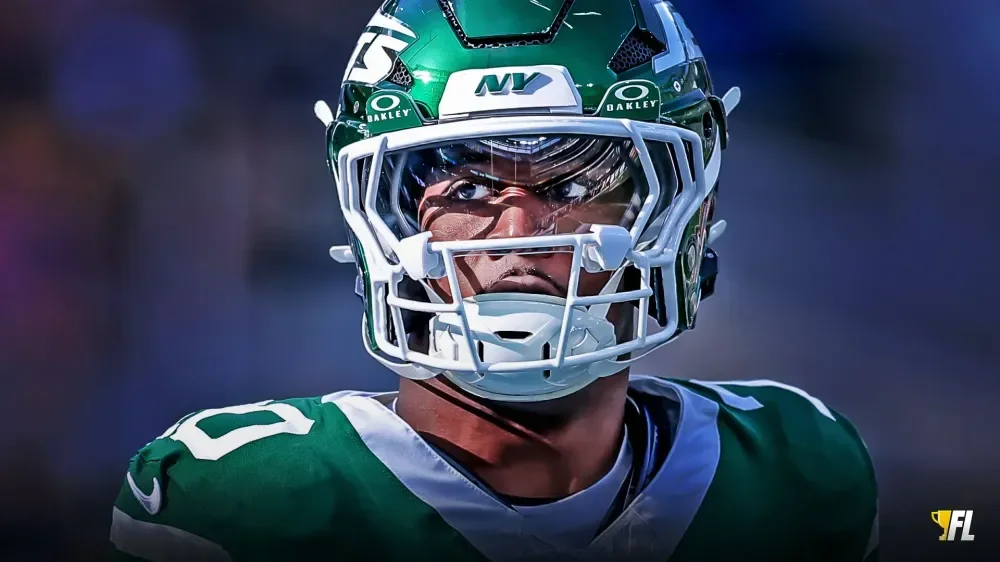
Breece Hall's career arc — from promising rookie to injury victim to talented-but-underutilized veteran — tells a story familiar to anyone who follows professional sports closely. Individual excellence is necessary but insufficient. You also need luck, timing, and organizational competence that provides the infrastructure for talent to flourish.
Hall has the first part covered. Whether he ever gets the rest remains one of the more interesting subplots in the NFL's ongoing saga of wasted potential. He's young enough to rewrite this story, talented enough to deserve that chance, and stuck enough in Jets purgatory that it might never happen.
That's the tragedy and the possibility wrapped together — the same duality that defines so many NFL careers. Breece Hall is simultaneously a cautionary tale and an unfinished story, a player whose best chapters might still be unwritten or might never be written at all.
In November 2025, as another lost season grinds toward its inevitable conclusion, the only certainty is uncertainty. And for a 23-year-old running back trying to salvage a career that promised so much more, that uncertainty is both the cruelest burden and the last remaining hope.
Related Articles

